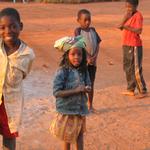"It's all about money": Urban-rural spaces and relations in Maputo, Mozambique
Within the anthropological urban scholarship on sub-Saharan Africa, there is a shared notion of the continued, and in some cases reemerging, importance of rural spaces, values and relations in cities and towns. In Mozambique's capital city, Maputo, associations with the rural are shaped by the urban dwellers' different positions on a scale of social (dis)advantage. This has led to very diverse types of engagement with the rural among the population, primarily differentiated along positions of class but also gender and age. For the best-off, who are able to live up to urban expectations, the rural is seen to have little to offer and is largely disregarded. For the poorest and most destitute, rural areas are effectively out of reach and unheeded. For the rest, the rural continues to be an important part of their cosmologies and struggles to survive albeit without losing their urban base and identity.





